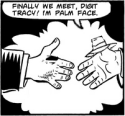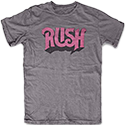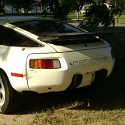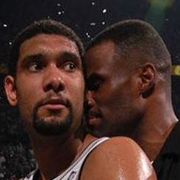|
Really the best thing to do is to call them and get quotes, and go with the store with the price in the second or third quartile for the price range in your area
|
|
|
|

|
| # ? May 15, 2024 20:38 |
|
Got my new MXR M288 Bass Octave Deluxe the other day and had some time to play around with it. Whole different world from the Micro POG that I've been using for the past 2 years or so. I'll try and give my impressions thus far, but there are still a few aspects of it that need further testing. Construction: First the boring stuff... Pedal is solidly built, nice and compact, knobs move freely but not too much. My only qualm with MXR pedals is that the power jack is on the side next to the Input. I really really hate that. My Tech 21 VT Bass is the same way and it's really inconvenient to set up my board layout using a centralized power-supply and often having cables that run just too short. Control: You've got 3 knobs and a mid-boost button on top; very simple. Your 3 controls are Dry (for your unaffected level), Growl, and Girth. Growl and Girth are both 1 octave below your dry sound, but they're EQ'd differently. I'll be getting to how they're different in a moment. The mid-boost button is a tiny, blue led-lit button that gives you a +4db to +14db (trim pot on the circuit board to adjust) boost to the mid frequencies which you can set to either 400hz or 850hz. Sound: The pedal has that great analog octave sound, similar to a Boss OC-2, but feels like it has a quicker response. And with the two different octave EQs, you can get a pretty wide variety of textures. The Girth settings are very thick, warm and kind of boomy but still with a tad bit of texture. Think dub reggae. Growl has more texture to it, not as thick. Growl when played alone without any dry sound really reminds me almost of a ring-modulator tone. (I'll hopefully be getting a few clips up soon). The mid-boost seems like it will be quite useful, I haven't had a chance to use it in a band setting yet (although I will this weekend). By default its set to 850hz, not sure of the db level, but it's not much, so I'm guessing 4db. I'll probably leave it as is, sounds great. Tracking and Playability: As with any analog octave or synth pedal, tracking is the big issue. The BOD will track pretty drat good down to a low G, but will start to get a few glitches below that, with the worst being at the low E. I don't really consider that a huge issue since I mainly only use an octave when I'm slightly higher on the neck. The only other issue I've noticed with tracking is that when I'm playing an A on my D string (7th fret), the pedal will track correctly for a second or two then jump as if I'd hit a harmonic. Weird... It might just be an overly resonant spot on my neck, or my strings, who knows. Not a huge issue. And honestly, if you're playing with the dry signal mixed in (which is what the majority of players will do) it's not very noticeable. Playing speed has not been an issue with the tracking, it has been able to keep up with as many notes as I can play. But note that I haven't tried with a pick. Slapping results in a very messy sound, probably because it's tracking the actual attack on the string rather than the note produced. Overall I really like this pedal, granted it's incredibly different from my Micro POG. So it's going to take some getting used to. I'm going to get some clips up sometime soon hopefully, but I'll be happy to answer any questions about the pedal in the meantime.
|
|
|
|
codyclarke posted:This is gonna be a very newbie question, but I'm just starting out on bass and I'm wondering if there's any consensus on how one should be finger picking. I saw something online that said I should be alternating thumb/ring/middle/index over and over for anything I play. I've seen other people alternate between index and middle for the most part. I've seen some people anchor their thumb on the pickup, others not. There are a lot of styles, and it takes some experimenting to find what's right for you. For what it's worth, having primarily played with my index and middle anchored on the pickup, changing to a technique where my thumb floats has had some advantages. When my thumb "floats", it's kept in a natural position behind my index, and is muting strings lower than the one I'm playing. I also personally play with a free stroke technique (when I pluck, I don't rest on the next string) because I have fingernails for playing classical guitar, and it's easier for me to avoid the nail with a free stroke. It's a pretty comfortable technique, though I still anchor sometimes. I've been meaning to integrate my middle finger more. I only use it occasionally. Some players advocate techniques such as playing with three fingers and the thumb over a ramp (a piece of wood radiused like the fingerboard under the strings). There are some good threads on the talkbass technique forum.
|
|
|
|
 Loud as gently caress for 50w.
|
|
|
|
I know this has been asked & answered a few hundred times, and I apologise but the thread is so god drat long. I've got a Highway 1 P-bass and I play in C tuning (yeah yeah) and I've been using regular gauge strings so far, but now I played a friends bass who has heavier ones and it was a lot better to play. So, anyone play in C or drop C and what kinds of strings do you use/recommend? What gauge? Flat/round? What brand? I'd rather modify the nut as least as possible, but if it's required then I will. Thanks in advance!
|
|
|
|
Dyna Soar posted:I know this has been asked & answered a few hundred times, and I apologise but the thread is so god drat long. Generally speaking, the heavier the better when you're down-tuning. Go for the heaviest gauge you can comfortably play with.
|
|
|
|
Bumble Bee posted:Generally speaking, the heavier the better when you're down-tuning. Go for the heaviest gauge you can comfortably play with. So would 110 be enough for the E string, or should I go down to 130? That's pretty heavy, I guess I'd have to modify the nut/saddle to get them in? I think I'd be comfortable with any gauge, as long as it sounds good  I guess I'm looking for opinions by people who actually play that low, too. Dyna Soar fucked around with this message at 17:12 on May 2, 2010 |
|
|
|
I have a P in C standard tuning, and I use a set of 132-100-80-65 Daddario Chromes flatwound strings, I definitely had the have the nut modified, and the hole on the bridge that the C string is inserted to had to be expanded. I would characterize string tension as fairly taught, but not guy wire tight. There's pretty even tension across the four strings. In any case, you're going to have to have the nut filed for the heavier strings and it's not a big issue because nuts are consumable and get changed all the time. They're consumable.
|
|
|
|
So I just got my first bass. It's a $200 Stagg with a Laney RB3 amp. I am just slowly going through Hal Leonard's method books.
|
|
|
|
pokie posted:holy poo poo
|
|
|
|
Dyna Soar posted:I know this has been asked & answered a few hundred times, and I apologise but the thread is so god drat long. I have been messing around with this for a few months now. I ordered some of the "house brand" strings from juststrings.com in .115", .120", and .125". I am playing in drop C, and so far the .125" is the best- I have tried .130" from a five-string set and it isn't bad, a little stiff. A .110" is too sloppy for me. I have been using the rest of the pack from a set of power slinkys, and that has been really good. Very recently, I ordered some slightly-heavier-than-power-slinky gauge single strings from juststrings.com but I have yet to try them out- will probably take care of that this week. With the .125" string I had to widen the nut a tiny bit, and I do mean a TINY bit- the string almost fit with no modification. The juststrings.com house brand strings are awesome though, just as good as any nickel round I have ever played, and I have played pretty much every brand. The ability to have more or less custom sets of strings for about what a regular pack of strings costs is really cool, and I feel all fancy when I do it.
|
|
|
|
Lakland has been bought by Hanson Musical Instruments, the folks who have been producing Lakland's electronics. John Pirrucello is now going to head up Lakland with Dan Lakin stepping down (not sure what role, if any he is going to be playing in the company). John is the former head of I think Marketing/Sales at Lakland and is an old friend of Dan's. Not really sure what this'll all mean for Lakland, but probably not much really. I do know that the Artist Signature models no longer carry their namesakes...
|
|
|
|
A question for bassist songwriters: What instrument(s) do you compose on?
|
|
|
|
thegloaming posted:A question for bassist songwriters: Guitar, mainly. Some parts I come up with on my bass, but I think about what's the guitar doing in most instances and go from there, then come up with something cool to play on bass behind that. Our singer plays piano and sometimes he contributes stuff there too. (This is all from a guy in a prog/metalcore band, mind you.) I'm more of a bassist, but I think being proficient in guitar (or piano, or something) is a useful skill for any bassist interested in songwriting.
|
|
|
|
thegloaming posted:A question for bassist songwriters: Guitar for me. In every band I've ever been in I've always played bass live but I've always written on guitar. Guitar gives a bit more depth in terms of songwriting but I hate playing it live because it seems such a punny thing with no real physicallity. Though really I think piano is probably the best songwriting instrument.
|
|
|
|
So a follow-up for both of you (or anyone else who wants to chime in): What sort of skills are important for guitar as a songwriting instrument? Just some basic chords and a good ear? I would think since you're not playing guitar to an audience or too frequently, technique isn't as important (although you probably have decent technique anyway if your bass technique is good). I ask because I've been sort of working on my bass and guitar skills at once and kind of getting tired of juggling them both. I want to play bass in a group setting, so that's what I want to spend the majority of my time on. Guitar frustrates me but I definitely can appreciate it as a songwriting tool, so I'd like to know what I should be working on, with the understanding that I only want to be "good" at bass. Rush_shirt fucked around with this message at 07:56 on May 4, 2010 |
|
|
|
Dyna Soar posted:I know this has been asked & answered a few hundred times, and I apologise but the thread is so god drat long. I run in C as of late and use a set of D'Addario 5 string Chrome Flats like another poster mentioned. I definitely recommend using a .130 or so string for the C, a regular E string just won't have any tension or tone unless it's a very heavy gauge. As far as flats, brand, etc. Go with what you like, the deeper lower tone that being in C gives you is really, really accented by flats (so much so that I brought in a fuzz pedal just to give my tone a bit more "cut" in the mix) but if you want you could go steel rounds just as well. My own question for you fine folks, my band is trying to rig up some "home" recordings, I'm used to just plugging into the recording device (whether it be a cheap pod at home or a proper recording set up through a direct box in the studio) but we're stuck with jamming a mic into the middle of the room and hoping it comes through clear. With tax money coming in we've all decided to get individual mics for our amps (2 guitar, bass, and drums in a death metal band) soooo....any advice I guess? Anyone have a mic they'd recommend for bass recordings? My tone isn't super bass heavy but it is prominent and I'd rather not lose it all in recording.
|
|
|
|
thegloaming posted:A question for bassist songwriters: Usually my bass. But that's mainly because the stuff I write is very groove-driven funk/jazz. Gotta have that underlying groove before I think of a melody to go on top. And actually, it really starts with a beat in my head... Then I pick up the bass to try and find a groove that'll go with the beat.
|
|
|
|
thegloaming posted:So a follow-up for both of you (or anyone else who wants to chime in): It all depends what you're wanting to write really. For me, my main goals as a songwriter is to come up with a strong melody and then build things around that, so I don't really need much in the way of technical ability as I believe most of the best melodies are relatively simple (some may disagree but that's how I write.) Also I'm quite a weak singer so normally I'll just try to play the vocal melodies roughly on the guitar to give the singer an idea of what to do. Other than that if I hear something interesting in a song I'll try to learn it and then incorporate it into my bag of songwriting "tricks" and figure out a way to use it later.
|
|
|
|
thegloaming posted:A question for bassist songwriters: My crappy Yamaha keyboard, actually. I find its a lot easier to "visualize" the song. Although sometimes I do start with a killer bass hook and work from there.
|
|
|
|
Cool, looks like my band is reforming again but without Bought an amp, now my setup is an 80's MIJ P-bass, maple fretboard with tapewounds* and a giant rear end 150 watt Peavey combo. I can post a pic if anyone cares. The amp is loud as hell and only has like four knobs lol. Question though, my amp has a three way power switch: ON (150 WATTS) - OFF - ON Whats the difference between the two ON's? Model is a Peavey 100ss TNT *Whoever recommended these strings, thanks, they're killer on my P-bass.
|
|
|
|
|
A MIRACLE posted:Question though, my amp has a three way power switch: ON (150 WATTS) - OFF - ON I used to rent one of these when I didn't bring my amp to rehearsal. Never knew, but still wondering.
|
|
|
|
A MIRACLE posted:
Might it have the option for both solid state and tube?
|
|
|
|
thegloaming posted:A question for bassist songwriters: My bass, but then again we play stuff that's just riffs. Some melodic guitar parts here and there but it's all about the riff. I repeat, it is all about The Riff.
|
|
|
|
thegloaming posted:So a follow-up for both of you (or anyone else who wants to chime in): Yeah, I'd say chord construction know-how is a solid place to start. Depends a lot on what kind of stuff you're writing, but it never hurts to know what's happening from a theory perspective. Usually when writing I'll put together the songs structure in my head before I've even written anything (first this part, then a fast part, then an interlude, etc). Then I'll start seeing if I can come up with things to play that fit the parts I've made up. Or maybe I'll come up with a riff somehow and store it away for later, when I'm looking for something that it'll fit in with. Plus when it comes to writing sweet riffs I just tend to do better at visualizing/coming up with cool things on guitar to start.
|
|
|
Popsicle Stand posted:Might it have the option for both solid state and tube? Hmm, I don't think it has any tube parts, although the tone is pretty sweet. I found the manual for a similar amp on their website if you're interested: http://www.peavey.com/assets/literature/manuals/tnt100.pdf
|
|
|
|
|
I ended up getting a 5-string set, heaviest is 125. God drat my fingers are sore after 3 hours of playing  I really need to practise more on these strings, the tone is a shitload better but drat my soft little fingers aren't used to this abuse. I might try 130 the next time but right now I'm really satisfied with this set.
|
|
|
|
A MIRACLE posted:Hmm, I don't think it has any tube parts, although the tone is pretty sweet. I found the manual for a similar amp on their website if you're interested: http://www.peavey.com/assets/literature/manuals/tnt100.pdf You probably saw it already but that manual says that one of the two ON settings will provide a better ground, so to use the one that sounds best. If anyone's interested!
|
|
|
|
My Jazz officially has new pickups and new strings for the first time in forever and has gone through a set-up. Now it makes people melt with how good it sounds. I got roundwounds put on them, I was gonna get flatwounds so I wouldn't have to worry about it again but went with rounds and love the sound now. How often should I change them to keep the sound fresh?
|
|
|
|
Dyna Soar posted:I ended up getting a 5-string set, heaviest is 125. God drat my fingers are sore after 3 hours of playing I think .125 is a good gauge for C. I used a D'addario Chromes 5-string set for a while, but the tension was too much for me on the higher strings. I swapped those out for a lighter set, but now the .132 low C is unbalanced with the rest of the strings. I think I'm going to try Labellas next, since the tension and gauge of their 5-string flats seems a bit more in line with my needs.
|
|
|
|
Thanks for the advice on songwriting. I think I'm going to give the guitar a rest; it's just not my instrument and juggling it with bass is just turning me into a half-assed musician. I'm going to try to do more with pushing the songwriting abilities of the instrument. Who the gently caress needs treble anyways?!
|
|
|
|
I switch back and forth a lot. It's important to be versatile.
|
|
|
|
|
A MIRACLE posted:It's important to be versatile. Why is this exactly?
|
|
|
|
You can take on any instrument in the group and you understand every player's role.
|
|
|
|
|
I'm not saying it's bad to be versatile, but neither do I think you need to know how to play guitar or any other instrument to be a good bassist, and vice versa. In the end I don't really care about the players "role" either. If the drummer wants to play to the guitar and not to the bass, fine. If the bassist wants to play high notes or melody, fine. As long as it sounds good. Then again I've never studied music in any form, I barely know the neck of my bass, I don't know how to read notation and know next to nothing of music theory. Still I make music that I and lots of people like.
|
|
|
|
A MIRACLE posted:You can take on any instrument in the group and you understand every player's role. That's usually a good thing, but I suspect what's most important is a musician's versatility within a single instrument. For example, what would be a better scenario? A. A musician who can play open chords on the guitar and root notes on the bass B. A musician who can only play bass, but knows scales, arpeggios, slap style, and harmonics Obviously you're going to get the best case scenario if you combined the two, but it seems like a musician who really knows the ins and outs of his instrument and can produce different sounds for different functions is infinitely more valuable than a novice "jack-of-all trades." And you can certainly understand your bandmates' roles without playing their instrument; in fact, that's one of the best skills a bassist can have. EDIT: Then again, this is just me defending my previous decision to focus on the bass, and I would like to open up a dialogue about the issue, so please respond! 
Rush_shirt fucked around with this message at 16:10 on May 6, 2010 |
|
|
|
Dyna Soar posted:I'm not saying it's bad to be versatile, but neither do I think you need to know how to play guitar or any other instrument to be a good bassist, and vice versa. In the end I don't really care about the players "role" either. If the drummer wants to play to the guitar and not to the bass, fine. If the bassist wants to play high notes or melody, fine. As long as it sounds good. That's the difference between making collaborative music and writing/making compositions of music. I'm at the point in my musical career where I'm not going to be just playing with a band, but putting together my own project. I have a clear idea of how I want my songs to sound, not just the bassline and basic melody, and it's a lot easier for me to convey those thoughts/ideas/visions to the other musicians if I understand the role of their instruments and how make use of those roles in the composition. Not that I'm suggesting this itself wouldn't be collaborative, or that one is better than the other. But I know how I want things to sound, and understanding at least the fundamentals of another instrument help the process immensely.
|
|
|
|
Scarf posted:That's the difference between making collaborative music and writing/making compositions of music. That's awesome. Since you said you compose primarily on bass, how do you work in the other instruments? Do you write it all down? Do you noodle with a guitar/percussion while you're figuring things out? It seems like, after playing so long with other people, you definitely develop a sense for what works and what doesn't for other instruments (which isn't to say that you would know the limits of an instrument intimately without having played it for years and years).
|
|
|
|
thegloaming posted:That's awesome. Since you said you compose primarily on bass, how do you work in the other instruments? Do you write it all down? Do you noodle with a guitar/percussion while you're figuring things out? It seems like, after playing so long with other people, you definitely develop a sense for what works and what doesn't for other instruments (which isn't to say that you would know the limits of an instrument intimately without having played it for years and years). Well I do own a guitar and I will play on that as well. But that's where theory knowledge comes into play. A mode is a mode, a 3rd a 3rd, etc. etc. It doesn't matter what the instrument is as long as you know what role you want to play and what role the other instrument will play. Do I want the bass to carry the melody with the guitar carrying the rhythm and chords? Vice versa? I'm syncopating such-and-such beat on my bass, do I want the drums to do the same or should we get a little disjointed. Do I want a bit of dissonance between the guitar and the bass here? So on and so forth. I know it can sound incredibly pretentious and like I'm up my own rear end... but when you have a clear idea of how you want a song to turn out, you kind of HAVE to consider poo poo like that and take some time to understand the other pieces of the puzzle. Otherwise you (read, I) get frustrated because, while it doesn't sound bad, it just isn't living up to your(my) expectations.
|
|
|
|

|
| # ? May 15, 2024 20:38 |
|
Scarf posted:Well I do own a guitar and I will play on that as well. But that's where theory knowledge comes into play. A mode is a mode, a 3rd a 3rd, etc. etc. It doesn't matter what the instrument is as long as you know what role you want to play and what role the other instrument will play. I think I understand. The theory you learn on one instrument definitely transfers over to the other. You have to learn different chord shapes, but other than that, as you said, a mode is a mode, intervals are intervals, etc. I suppose the best way to improve my songwriting is to just keep at it with bass and the theory behind bass. Oh, and fun is also important.
|
|
|

















